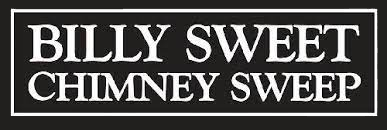
Water should’t be allowed to seep inside your chimney. Many chimney-related problems start with water intrusion.
A lot of what we do for our clients at Billy Sweet Chimney Sweep roots in prevention. We sweep your chimney regularly to prevent excess creosote build-up and potential fire hazards. We install chimney caps to prevent rain and snow from diving right into your flue opening. We apply waterproofing sealant to your masonry to prevent excess moisture intrusion and moisture damage. We inspect your chimney system every year in part to prevent lots of things: draft issues, water or carbon monoxide leaks, even just to prevent small problems from becoming larger, more troubling and more expensive problems.
If it seems like a big part of our preventative efforts are focused on fighting water, you’re right, and there’s good reason for that. Left unchecked, moisture intrusion can cause extensive damage to your chimney system and the exterior and interior building materials around them.
Want a deeper look into how much trouble water can be? Here are three ways water can ruin (or at least significantly damage) your chimney:
“The Freeze/Thaw Cycle”
We all know that water expands when it freezes — you only have to forget you put a glass bottle of soda or beer in the freezer once to brand that messy lesson into your mind. Let’s think about how that can pertain to a chimney. Over years of being exposed to the elements, your masonry can develop some small cracks, whether that’s in your mortar joints or chimney crown, or in your bricks themselves. Moisture can make its way into those small cracks and sit there as the temperature drops. Once it reaches freezing temperatures, that water freezes and expands, straining against the masonry material — and more often than not, the ice wins, causing your masonry to crack, flake and crumble (called spalling). Over time, that can leave you with enough damage to need your whole chimney crown rebuilt, or extensive repairs on your chimney stack.
To avoid extensive spalling and other damage related to the freeze/thaw cycle, Billy Sweet Chimney Sweep technicians aim to repair all cracks and imperfections while they’re still small, whether that means applying a crown coat seal to your chimney crown or tuck pointing your damaged mortar joints. It’s one of the many benefits of keeping up with your annual chimney inspections — we’ll be able to keep on top of issues before they turn into huge hassles.
Corrosion And Rust
We know what happens when metal and moisture collide, too: dark red rust and crumbly corrosion. Since several components in your chimney system are made of metal, rust and corrosion are a concern too. If, say, your chimney cap is missing and moisture is making its way into your flue, it might repeatedly soak your metal throat damper — the part that lets you open and close your flue when you are or aren’t using your fireplace. A rusted throat damper can get stuck, or its plate can corrode and break. Rusted chimney flashing or chase covers can allow moisture to damage the interior of your chimney and your home too.
Chimney inspections are another important part of preventing this kind of damage. But beyond that, we also recommend that clients with galvanized metal components look at replacements made with more durable materials — like stainless steel and copper — which won’t have that kind of vulnerability to rust and corrosion.
Chimney Mold
Mold growth doesn’t really “ruin” your chimney, but it’s absolutely a problem you need to be aware of, since exposure to mold is linked to a variety of health issues, from respiratory problems and allergic reactions and triggering asthma episodes. Mold feeds on moisture, so if a leak develops in your chimney, mold can get a chance to grow and proliferate. Mold remediation is a two-pronged process: We need to get rid of the mold, and we need to repair the leak that was feeding the mold. Billy Sweet technicians are trained in the safe and proper removal of mold, and we can also find and repair any damage that’s leading to leaks. We can also talk with you about some preventative measures that can help you avoid leaks, like chimney waterproofing.
If you have any concerns or questions about water and its relationship with your chimney, we’re always here to help. Give Billy Sweet Chimney Sweep a call!
